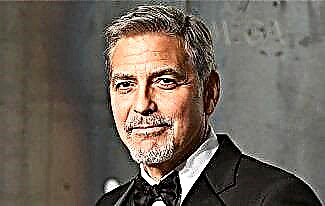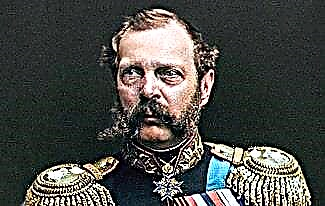Alexander Porfirevich Borodin (1833 - 1877) was one of the few people of modern times who managed to achieve outstanding achievements in two diametrically opposite areas. Had he lived to the 1960s, he would have been amused by the debates of physicists and lyricists. Most likely, he would not have understood the very subject of the dispute. At least his life, in which there was a place for both great musical works and outstanding scientific discoveries, does not in any way indicate the existence of an irreconcilable contradiction between the scientific and creative minds.

1. Alexander Borodin was the illegitimate son of a Georgian prince and the daughter of a military man. The prince could not recognize the boy as his son, but he took a great part in his fate, and before his death he married the mother of the future composer, gave little Sasha freedom (they simply had to write him down as a serf at birth), and bought them a house.
2. Avdotya Konstantinovna, the boy's mother, doted on him. The path to the gymnasium was closed to Alexander, but the best teachers were engaged in his home schooling. And when the time came to get higher education, the mother gave a bribe, and the officials of the Treasury Chamber recorded Alexander Borodin as a merchant. This allowed him to pass exams for the gymnasium course and enroll in the Medico-Surgical Academy as a free listener.
3. Alexander's abilities manifested themselves very quickly: at the age of 9 he already wrote complex musical works, and a year later he became seriously interested in chemistry. In addition, he painted and sculpted well.
4. After graduating from the academy, Borodin was completely absorbed in chemistry, remembering music, except when visiting theaters. His interest in music returned to his acquaintance with Ekaterina Protopopova. The beautiful pianist was seriously ill and had to undergo treatment in Europe. Borodin accompanied Catherine during her trip to Italy, since the local chemical school aroused his professional interest in him. Young people naturally became close and got engaged.

5. Wife Borodin suffered from severe asthma. Even with full adherence to the regime, she sometimes had severe seizures, during which her husband acted both as a doctor and as a nurse.
6. Borodin all his life considered himself a chemist, and treated music as a hobby. But in Russia, science is not the best way to material well-being. Therefore, even as an academician of the Medical-Surgical Academy, Borodin moonlighted by teaching in other universities and made translations.
7. His colleagues treated Alexander Porfirievich's hobby for music with even less reverence. The outstanding scientist Nikolai Nikolaevich Zinin, who opened the way to big chemistry for Borodin, believed that music distracts the scientist from serious work. Moreover, Zinin's attitude to music did not change even after the triumphant premiere of Borodin's First Symphony.

N.N.Zinin
8. Borodin is known in the world as a composer, despite 40 scientific works and the reaction named after him, only experts know about his studies in chemistry.
9. Borodin wrote down the notes with a pencil, and to keep them longer, he processed the paper with egg white or gelatin.
10. Borodin was a member of the “Mighty Handful” - the famous five composers who sought to translate the Russian national idea into music.

11. Alexander Porfirevich wrote two symphonies and two quartets. All these works were among the first in Russia in their genres.
12. The composer worked on his greatest work - the opera "Prince Igor" - for almost two decades, but he never finished his work. The work was completed and orchestrated by A. Glazunov and N. Rimsky-Korsakov. The opera was first performed in 1890 - three years after Borodin's death - and was a tremendous success.

Contemporary production of the opera "Prince Igor"
13. The scientist and composer was also known for his social work. He actively worked at the Women's Medical Courses at the Military Medical Academy, and protested against their liquidation. The reason for the liquidation was simply ridiculous: the military decided that women's courses were not their profile (although 25 graduates participated in the Russian-Turkish war). The War Ministry promised to keep funding. The Petersburg City Duma decided that 15,000 rubles would be needed to maintain the courses instead of the 8,200 promised by the military. They announced a subscription for which they collected 200,000 rubles. The courses, as you can easily guess by the size of the amount, have been ordered to live long.
14. Alexander Porfirevich Borodin was an extremely absent-minded person. There are many stories about this, and many seem exaggerated. But the fact that he regularly confused lecture rooms and weekdays with weekends is true. However, such absent-mindedness can have a completely prosaic explanation: in addition to studying chemistry and music, he often had to stay awake at night, caring for his sick wife.
15. On February 15, 1887, on the occasion of Maslenitsa, Borodin gathered many friends in his service apartment. During the fun, Alexander Porfirevich grabbed his chest and fell. Despite the presence of several well-known doctors at once, it was not possible to save him. However, doctors still manage to save not everyone from the consequences of a massive heart attack.










